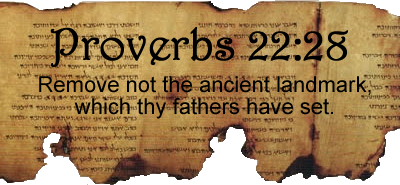What Bible Should I Use?
 The Holy Bible is the foundation of what we believe as Christians. Throughout the Bible, the importance of God's word is evident. From Satan's attack on it in Genesis 3:1 ("Yea, hath God said") to the warning in Revelation 22:18-19 to not add or subtract from it, the Bible has been the basis of any man's relationship with God through Jesus Christ. This thought is stated clearly in Romans 10:17 - "So then faith cometh by hearing, and hearing by the word of God."
The Holy Bible is the foundation of what we believe as Christians. Throughout the Bible, the importance of God's word is evident. From Satan's attack on it in Genesis 3:1 ("Yea, hath God said") to the warning in Revelation 22:18-19 to not add or subtract from it, the Bible has been the basis of any man's relationship with God through Jesus Christ. This thought is stated clearly in Romans 10:17 - "So then faith cometh by hearing, and hearing by the word of God."
The longest chapter in the Bible, Psalm 119, refers to the word of God over 150 times. In fact, a key precept about God's word is contained in Psalm 119:89 - "For ever, O LORD, thy word is settled in heaven." God's word has not and will not change - He settled it for ever.
So, where can I find God's Word? What Bible should I use? Today, one can find multiple English versions of the Bible. While much of the information contained in them is consistent across all versions, significant variations exist between versions.
We use the King James Version (KJV) of the Bible for a variety of reasons.
First is the enduring quality of this English translation. While it was not the first English translation, the KJV of the Bible has existed for about 400 years. The translation of the KJV of the Bible was a seven year effort completed in 1611. Other than corrections made to it because of the inferior printing process in the early 1600s and spelling changes due to a lack of standard spelling of certain words in the early 1600s, the KJV of the Bible has remained the same for 400 years. Most other modern Bible versions have undergone multiple revisions.
Second is the underlying textual basis. Specifically, the Greek New Testament which serves as the basis of the KJV New Testament is called the Textus Receptus ("Received Text"). This is unlike most modern versions of the Bible which use a text called the Codex Vaticanus - a older text but with many inconsistencies. In other words, the newer base text is the better text as a starting point for translation.
Third is the accuracy of God's word. While the Bible is not a book of biology, it is accurately concerning biology - Genesis 1:25 Animals reproduce after their king. While the Bible is not a book of chemistry, it is accurate concerning chemistry - II Peter 3:10 the elements (the foundation of all matter) shall melt with fervent heat. While the Bible is not a book of geography, it is accurate concerning geography - Isaiah 40:22 reference to the circle of the earth. The Bible contains hundreds of prophetic statements, many of which have been fulfilled. For instance, Micah 5:2 (written 700 years before the birth of Jesus) prophecied that Christ would be born in Bethlehem.
Fourth is the consistency of God's word. With books written by about 40 men over a span of 1500 years, the KJV of the Bible stands today without contradiction or error. Some may say this is coincidence - what faith it would take to believe this to be a mere coincidence as opposed to an indication of God's preservation.
We encourage you to invest time daily by reading God's word reveals to man through the KJV of the Bible. God's word is vital to your relationship with your Creator and Saviour - Psalm 119:9-16.
